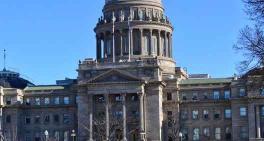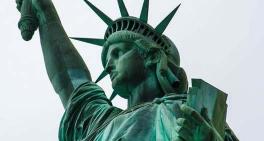Supreme Court makes sports betting a possibility nationwide
Legal Compliance News
The Supreme Court on Monday gave its go-ahead for states to allow gambling on sports across the nation, striking down a federal law that barred betting on football, basketball, baseball and other sports in most states.
The justices voted 6-3 to strike down the Professional and Amateur Sports Protection Act, a 1992 law that forbade state-authorized sports gambling with some exceptions. It made Nevada the only state where a person could wager on the results of a single game.
Many states have hoped their cut of legalized sports gambling could help solve budget problems. Stock prices for casino operators and equipment makers surged after the ruling was announced.
The ruling, in a case from New Jersey, creates an opening to bring an activity out of the shadows that many Americans already see as a mainstream hobby. The American Gaming Association estimates that Americans illegally wager about $150 billion on sports each year, and one research firm estimated before the ruling that if the Supreme Court were to strike down the law 32 states would likely offer sports betting within five years.
Justice Samuel Alito wrote for the court, "The legalization of sports gambling requires an important policy choice, but the choice is not ours to make. Congress can regulate sports gambling directly, but if it elects not to do so, each state is free to act on its own. Our job is to interpret the law Congress has enacted and decide whether it is consistent with the Constitution. PASPA is not."
Justices Ruth Bader Ginsburg, Stephen Breyer and Sonia Sotomayor dissented. Ginsburg wrote for the three that when a portion of a law violates the Constitution, the court "ordinarily engages in a salvage rather than a demolition operation," preserving what it can. She said that instead of using a "scalpel to trim the statute" her colleagues used "an axe" to cut the remainder down. Breyer agreed with the majority of the court that part of the law must be struck down but said that should not have doomed the rest of the law.
Concerned that questions will be raised at some point that betting could affect teams' performance and the outcome of games, all four major U.S. professional sports leagues, the NCAA and the federal government had urged the court to uphold the federal law. In court, the NBA, NFL, NHL and Major League Baseball had argued that New Jersey's gambling expansion would hurt the integrity of their games. Outside court, however, leaders of all but the NFL have shown varying degrees of openness to legalized sports gambling.
Related listings
-
State appeals court reinstates California's right-to-die law
Legal Compliance News 06/16/2018A state appeals court has reinstated — at least for now — California's law allowing terminally ill people to end their lives.The Fourth District Court of Appeals in Riverside issued an immediate stay Friday putting the End of Life Option ...
-
Gamers in court for first time after Kansas 'swatting' death
Legal Compliance News 06/13/2018Two online gamers whose alleged dispute over a $1.50 Call of Duty WWII video game bet ultimately led police to fatally shoot a Kansas man not involved in the argument will make their first appearances in court Wednesday in a case of "swatting" that h...
-
UK Supreme Court criticizes Northern Ireland abortion laws
Legal Compliance News 06/08/2018Britain's Supreme Court on Thursday criticized Northern Ireland's strict anti-abortion laws but dismissed a legal challenge.A majority of the court decided that the Northern Ireland Human Rights Commission, which initiated the case, did not have the ...

CHICAGO BUSINESS & CORPORATE LITIGATION LAWYERS
When faced with a legal challenge, your attorneys should help you identify your goals at the beginning of the process. Thereafter, every action that follows must be undertaken with the aim of meeting those goals. Wasted effort equals wasted time and money, that’s something you cannot afford and your attorneys must respect this concept. At Roth Law Group, we counsel our clients to confront their legal challenges aggressively, but with purpose.
As a former Marine Corps Pilot, I learned that you must assess the situation, determine your mission, construct a plan to achieve the mission and execute that plan. As an attorney and small business owner, I apply the same concepts in taking on my client’s legal challenges. And while it is generally preferable to resolve cases early in the process whenever possible, if you have no choice but to fight, you need someone who is willing to aggressively advocate for you. Here at Roth Law Group, we never back down from a challenge and we fight to win. Let our experienced attorneys put you in control of your legal challenges so you can get back to running your business.




